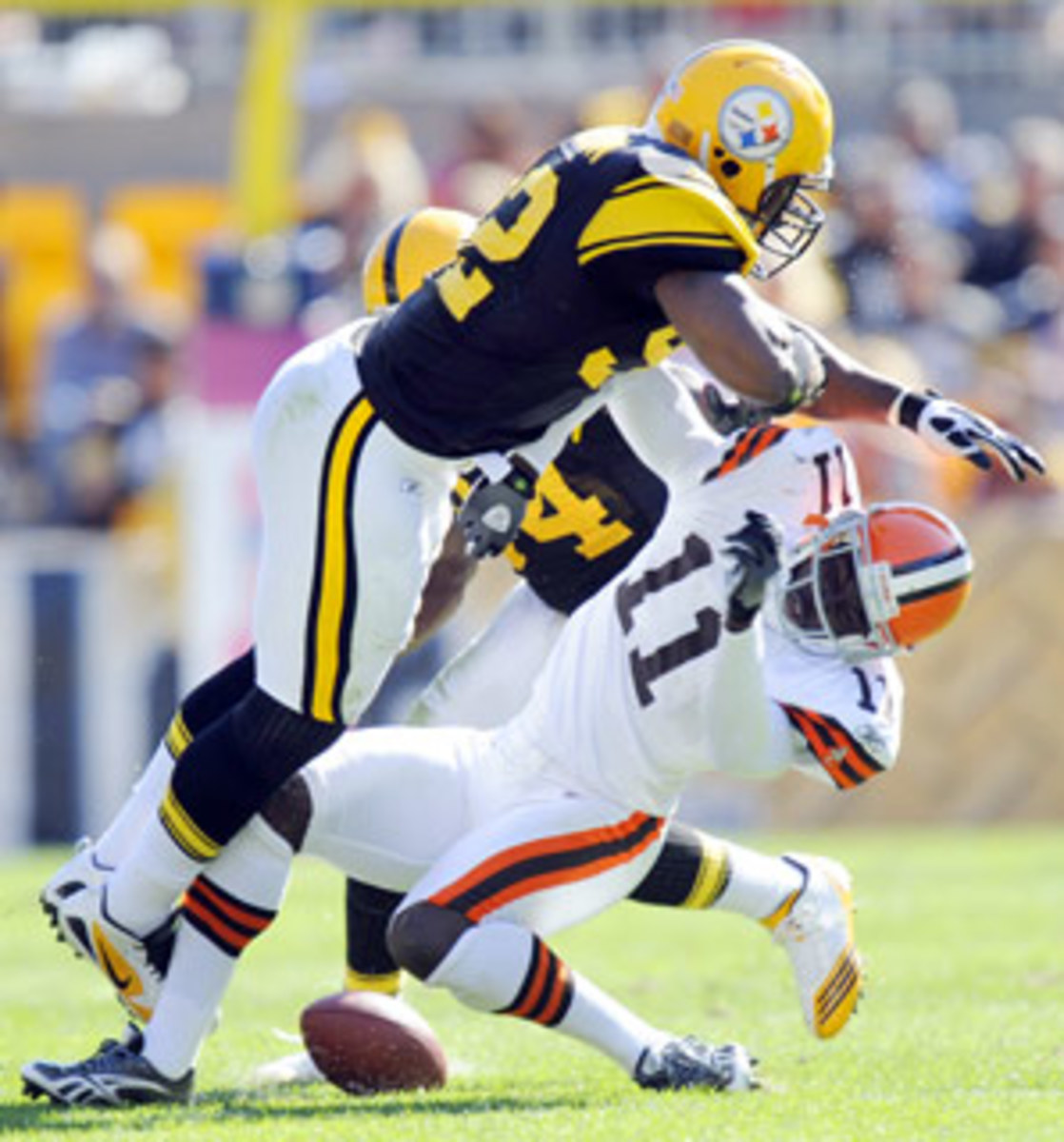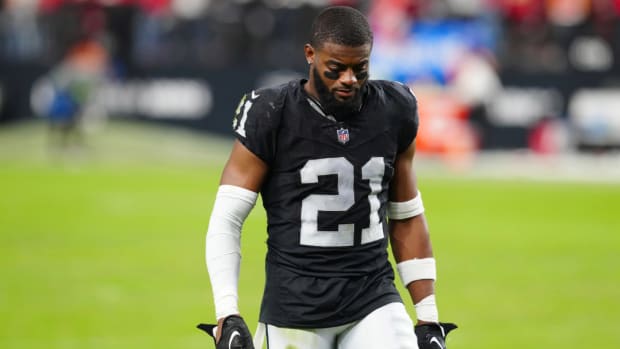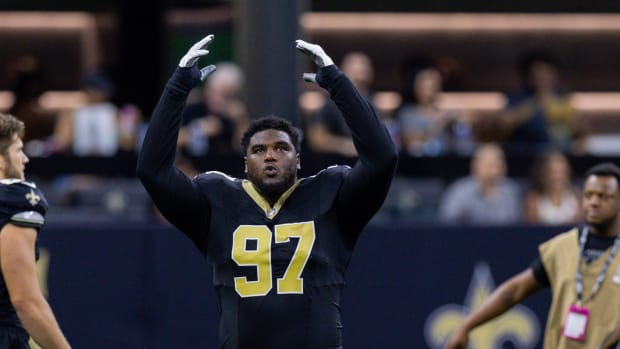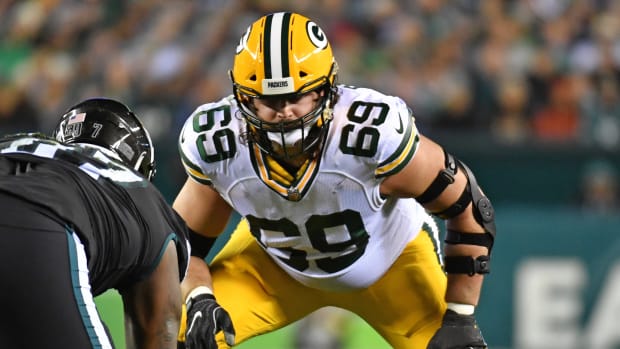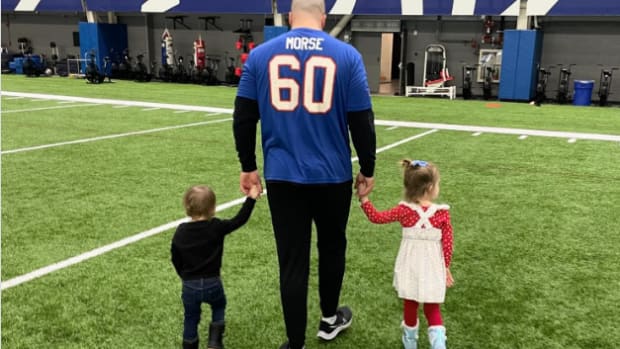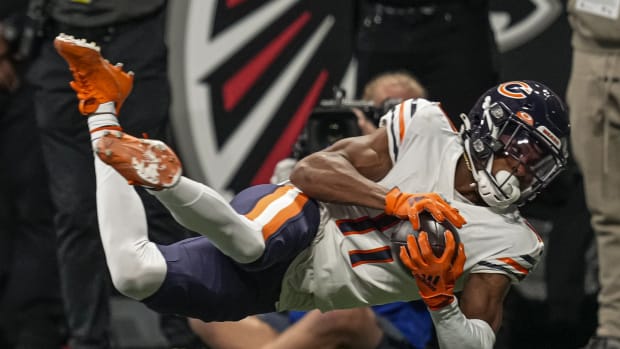The NFL emphasis to crack down on head shots is hypocritical
For one day this week, James Harrison pondered retirement. To the Pittsburgh Steelers' All-Pro linebacker, a football life without the thrill of attempted decapitation was difficult to contemplate. Is it better to have concussed and lost than never to have concussed at all?
Harrison said he was taught a game and a culture he no longer recognized. After one particularly violent weekend, the NFL had decided to step up enforcement of a rule already in place. If you were judged to have led with your head on a tackle, you would be subject to fine and/or suspension.
To Harrison, a former Defensive Player of the Year, it amounted to betrayal. The NFL changed the way it enforces its rules. "Now you're telling me that everything that they've taught me for the last 20-plus years, is not the way you're supposed to play the game anymore,'' Harrison said early this week. "If that's the case, I can't play by those rules. You're handicapping me."
Good point. Except for this: The NFL doesn't care what James Harrison thinks.
Unless Harrison suddenly sits at the head of a long table on the top floor of a corporate tower, he's a pawn. Unless he's writing seven-figure checks to televise games or advertise in them, or to acquire a license to sell a product, he's a player, not a Player.
The NFL's real problem isn't human carnage on Sunday afternoons, though there is enough evidence now to suggest that carnage is not too strong a word. It's not the league's longstanding human missile crisis that somehow became big news last weekend. The league's biggest wonder today is, How violent can we be?
The league is hypocritical, of course, because among its strengths is a well-oiled p.r. machine and all p.r. machines require a certain level of hypocrisy. The NFL sticks its wet finger into the wind and asks, "How much can we spin the public, and still maintain our image?''
The NFL is caught between a rock and a hard hit. The league likes its violence. Violence is profitable. Extreme violence is extremely profitable. We're a violent nation, born in blood, steeped in our right to bear arms, immersed in Hollywood violence. Hasta la vista, baby.
We like the hits. The NFL didn't get rich giving us what we don't like.
Only now, after one especially traumatic Sunday, the NFL has decided its best image move is to get a conscience when it comes to blows to the head. It might not solve the problem associated with playing human car crash 17 weeks a year. But it will look like we're solving it.
Why wasn't Harrison suspended for concussing two Cleveland Browns last Sunday, with head shots? Why wasn't he suspended a day later, for saying his goal is to hurt players?
At various times over the last several years, half the Pittsburgh defense could have been washing high school blackboards on a Sunday afternoon. Remember how Hines Ward broke the jaw of Cincinnati linebacker Keith Rivers? Mr. Harrison, write this 100 times: "I will not use my head as a weapon, I will not use my head as a weapon ...''
Why wasn't New England's Brandon Meriweather suspended for his hit on Baltimore's Todd Heap? Why no such punishment for Atlanta's Dunta Robinson for his hit on Philly's DeSean Jackson? The NFL didn't have to instantly enact a rule; it had one already:
"Using any part of a player's helmet (including the top/crown and forehead/hairline parts) or facemask to butt, spear, or ram an opponent violently or unnecessarily; although such violent or unnecessary use of the helmet is impermissible against any opponent, game officials will give special attention in administering this rule to protect those players who are in virtually defenseless postures."
The answer is, because the league stuck its finger into the prevailing wind, perceived a p.r. crisis, and applied swift damage control.
You could argue that as long as steps are taken to protect the brains and spines of athletes, who cares about the league's motives? If it keeps one player from a brain injury, it's worth it. Point taken. But that would be ignoring how we got here in the first place.
If the NFL cared about the safety of its work force, we wouldn't be having this chat today. The league would not have had photos of last Sunday's mega-hits on its website, as late as Wednesday morning. It would not have its logo on videos that glorify big hits.
A video game called NFL Blitz sits in my basement. Fun game, Blitz. Real NFL players, essentially ripping each other to shreds. Clothesline tackles, crackback blocks, defensive players pile-driving quarterbacks into the cartoon sod. Players scoring touchdowns, then flexing their Mr. Universe forms. The whole football cocktail on display, endorsed by the league that suddenly abhors helmet-to-helmet hits.
And we won't even get into how long it took the NFL to acknowledge that, yes, maybe, possibly multiple concussions on the football field can lead to dementia off it. How many ex-players are walking around now, forgetting where they live, when they're a block away from home?
The NFL isn't alone in this. Baseball waived its conscience in 1998, benignly neglecting the ridiculously Popeyed arms of Mark McGwire. You sure have grown, Sammy Sosa. You must be eating your Wheaties.
The wind has shifted. Or at least the NFL has perceived a shift. Players will be asked to change who they are and how they play, for the sake of safety. Whose safety, though? Is the league as concerned with the well-being of its players as it is the security of its bottom line?
Harrison was right about one thing: You can't unlearn a way of playing. You can't stop and think during a play. Thinking takes time. Reacting does not. How Harrison reacts to the NFL's sudden, knee-jerk concern for helmet-to-helmet collisions remains to be seen.
He's confused, though. Can you blame him?
































